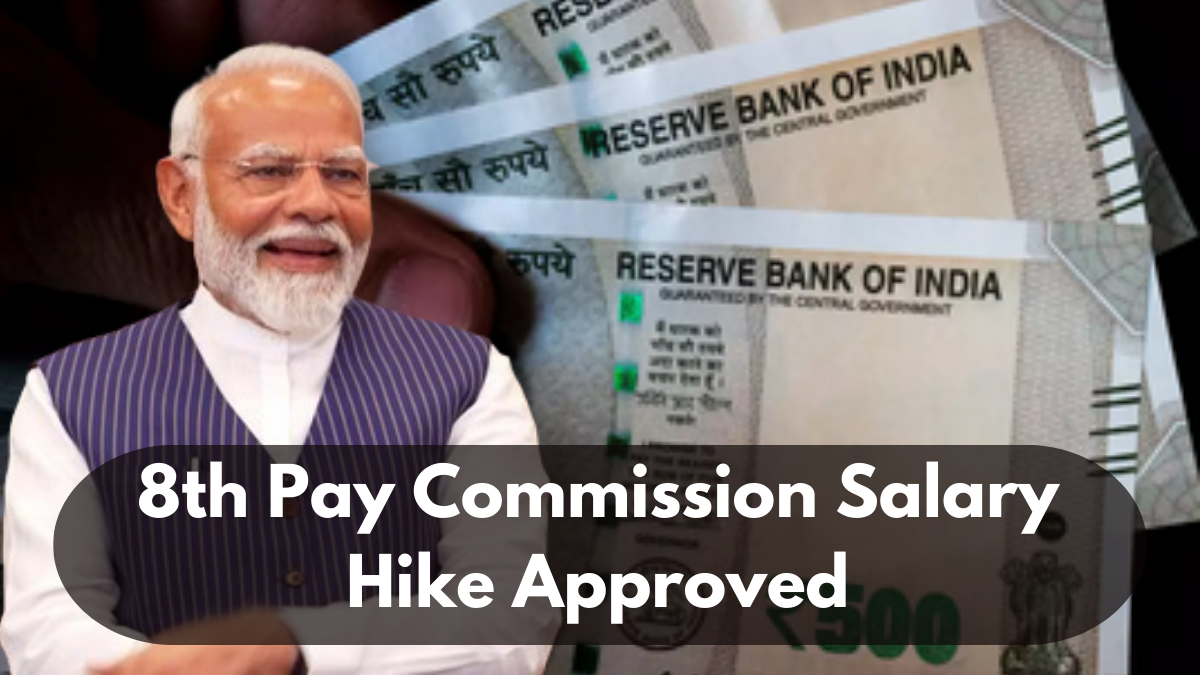The Union Cabinet has officially sanctioned the establishment of the 8th Pay Commission, a long-anticipated move that brings optimism to central government employees and pensioners. This development, announced ahead of the Union Budget 2025, responds to growing calls for revising pay structures to address economic shifts and inflation.
Union Minister Ashwini Vaishnaw confirmed that Prime Minister Narendra Modi approved this landmark decision, which is set to benefit over one crore government employees and pensioners. While the exact timeline remains tentative, the commission’s recommendations are anticipated to come into effect by 2026.

The Significance of Pay Commissions in Economic Policy
What Do Pay Commissions Do?
Pay commissions play a pivotal role in restructuring salary systems for government employees, ensuring alignment with inflationary trends and market conditions. Their evaluations encompass:
- Inflation Analysis: Examining how rising costs affect disposable income.
- Market Comparisons: Benchmarking salaries against private-sector standards.
- Financial Well-being: Proposing adjustments to enhance employee benefits.
By balancing these factors, pay commissions significantly influence government expenditure, thereby shaping the nation’s economic framework.
Expected Focus Areas of the 8th Pay Commission
The 8th Pay Commission is likely to recommend changes in the following domains:
- Salary Revisions: Proposals for revised base pay.
- Dearness Allowance (DA): Adjustments reflecting current inflation rates.
- Retirement Benefits: Enhancements in pensions and post-retirement perks.
While these reforms aim to uplift employee welfare, they also necessitate strategic fiscal planning to minimize stress on the national budget.
Factors Driving the Demand for the 8th Pay Commission
The demand for the 8th Pay Commission has been growing due to several economic and social factors. The 7th Pay Commission, constituted on February 28, 2014, under Justice Ashok Kumar Mathur, implemented its recommendations in 2016. However, with over eight years since the last revision, employee associations and trade unions are pressing for updates to meet current challenges.
Key drivers include:
- Rising Inflation: Eroding the purchasing power of employees and pensioners.
- Outdated Pay Structures: Salary levels no longer align with market trends or economic realities.
- Increased Financial Pressures: Particularly for pensioners coping with escalating healthcare and living costs.
What Changes Can Employees Anticipate?
Although specific implementation details are yet to be confirmed, speculations suggest significant improvements:
| Category | Expected Change |
|---|---|
| Minimum Base Salary | Increase from ₹18,000 to approximately ₹34,560. |
| Dearness Allowance (DA) | Adjustments to reflect current inflation rates. |
| Implementation Timeline | Possible inclusion in Union Budget 2025, effective by 2026. |
These potential updates have generated widespread anticipation among employees and pensioners, with expectations of enhanced financial stability.
Challenges in Implementing the 8th Pay Commission
While the proposed revisions promise significant benefits, they come with their own set of challenges:
- Budgetary Pressures: Accommodating higher salaries will strain government finances.
- Sectoral Balancing: The government must ensure that increased spending does not compromise essential services like healthcare or education.
- Inflation Risks: Large-scale salary hikes could contribute to inflation, necessitating careful economic oversight.
To address these challenges, phased implementation and targeted budget allocations are likely to be key strategies.
The Path Ahead: Union Budget 2025 and Beyond
The Union Budget 2025, scheduled for February 1, 2025, is expected to provide clarity on the 8th Pay Commission’s roadmap. As the government navigates the complexities of fiscal discipline and employee expectations, updates on implementation timelines and policy specifics will be eagerly awaited by stakeholders.
Employees and pensioners are advised to monitor official announcements and budgetary developments closely to stay informed about forthcoming changes.
Frequently Asked Questions (FAQ)
Q1. What is the purpose of the 8th Pay Commission?
The 8th Pay Commission is tasked with revising salary structures, allowances, and retirement benefits for central government employees and pensioners, ensuring they reflect current economic conditions.
Q2. When will the 8th Pay Commission’s recommendations be implemented?
Although the recommendations are expected to be finalized by 2025, their implementation is likely to begin in 2026.
Q3. How will the 8th Pay Commission impact salaries?
The minimum base salary for central government employees is speculated to increase from ₹18,000 to around ₹34,560, along with adjustments to dearness allowances.
Q4. What are the challenges in implementing the new pay structure?
The primary challenges include budgetary constraints, the risk of inflation, and the need to balance expenditure across other crucial sectors.
Q5. How often are pay commissions constituted in India?
Pay commissions are generally established every 10 years to ensure government salaries and benefits remain aligned with economic and social developments.
Click Here To Know More

I am a passionate technology and business enthusiast. I constantly explore the intersection where innovation meets entrepreneurship. With a keen eye for emerging trends and a deep understanding of market dynamics, I provide insightful analysis and commentary on the latest advancements shaping the tech industry.
